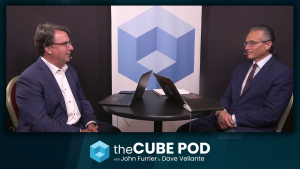VDI Showing Signs of Intelligent Life, Says Wikibon Analyst Scott Lowe
![]() “Fortunately, we’re beginning to see signs of intelligent life in the primordial goo that is VDI,” writes Wikibon Analyst Scott Lowe in his latest Alert, “VDI’s Evolution Provides New Opportunities for Deployment.”
“Fortunately, we’re beginning to see signs of intelligent life in the primordial goo that is VDI,” writes Wikibon Analyst Scott Lowe in his latest Alert, “VDI’s Evolution Provides New Opportunities for Deployment.”
Lowe reports significant evolution in the technology’s genetics, particularly in the areas of reducing the huge initial investments, dealing with morning boot and log-in storms as everybody in the office starts their terminals simultaneously, and in the terminals themselves.
Specifically, he says VDI is evolving towards increased flexibility in supporting the actual desktop workers with new species such as Teradici PC-over-IP, Wyse TCX, and Citrix HDX, as well as Microsoft’s improvements to RDP. It is also becoming simpler, more efficient, and more flexible and easier on the OpEx budget with modular systems that provide a complete virtual architecture and can grow as needed. Those improvements include flash and RAM storage to handle the boot storms.
And software is also evolving. He specifically cites VMware View 5.1 and its View Storage Accelerator as supporting RAM cache to help solve the boot storm issue.
On the hardware side, he cites the HP t410 terminal with a built-in 18.5” monitor and built-in software that allows it to automatically adapt to the environment it is deployed into. It can be completely powered off the Ethernet cable, taking “thin to a whole new level, at least from a power perspective.”
The problems are not all solved, he writes, but the genetics of VDI is improving, and CIOs who have been on the fence should take a new look at the latest breeds.
A message from John Furrier, co-founder of SiliconANGLE:
Your vote of support is important to us and it helps us keep the content FREE.
One click below supports our mission to provide free, deep, and relevant content.
Join our community on YouTube
Join the community that includes more than 15,000 #CubeAlumni experts, including Amazon.com CEO Andy Jassy, Dell Technologies founder and CEO Michael Dell, Intel CEO Pat Gelsinger, and many more luminaries and experts.
THANK YOU









